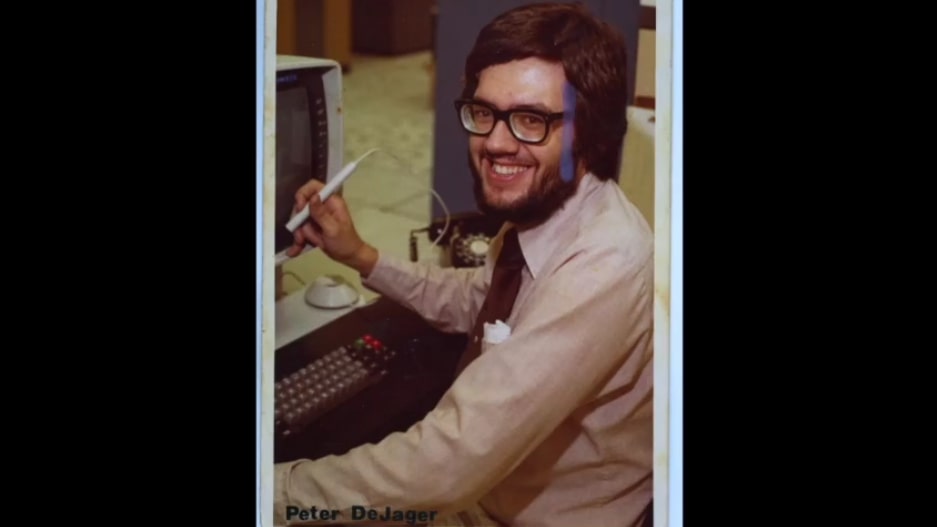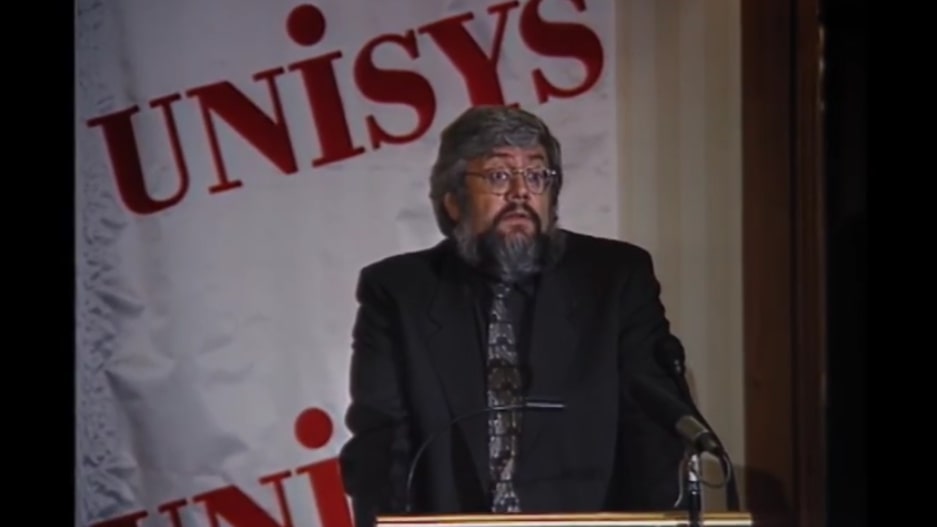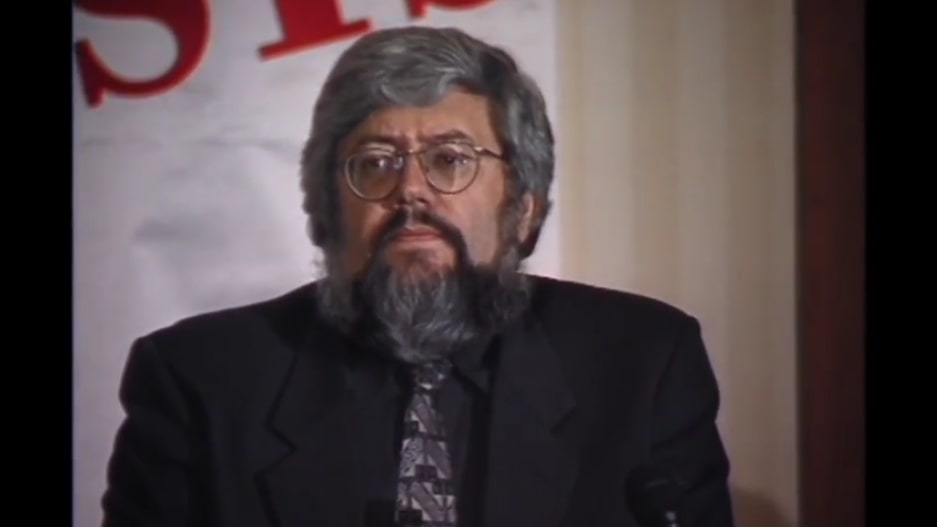As an HBO original documentary living up to its title in nearly every way conceivable, ‘Time Bomb Y2K’ can only be described as equal parts baffling, entertaining, intriguing, and nostalgic. That’s because this Brian Becker and Marley McDonald-directed film comprises just archival footage to really shine a light upon how the millennium bug rumor spread hysteria across the globe. So now, if you simply wish to learn more about one of its leading outcriers — industry professional Peter de Jager — as well as his current standing, we’ve got all the essential details for you.
Who is Peter De Jager?
It was back in 1977 when Peter admittedly stepped foot into the world of technology by joining IBM as an operator, only to quickly realize there could be an issue with the digital calendars. The South African-born Canadian thus stepped back before deciding he himself should do something about it by the time the early 1990s rolled around because he genuinely feared a catastrophe. He actually penned a detailed 3-page piece titled Doomsday 2000 in 1993, detailing the way the computer clock reset from 1999 to 2000 could cause several disruptions in servers worldwide.

Peter clearly stated, “the cost of fixing Y2K” could be “between $50 billion and $70 billion,” only to later claim this estimation was far too low considering people’s growing tech use. He then jumped this number to “only” $200 billion to $300 billion, out of which it came to light that $120 billion was contributed by a wide variety of US businesses themselves; they were fearful too. This was further kind of pushed by the consultant as he evolved into the public face of this movement, giving interviews, launching a site, and essentially sharing everything he knew or suspected.
Peter actually ran a site called Year 2000, wherein he published blogs on survival living, possible catastrophes in place, as well as old-timey clocks, apparel, and other ‘necessary items” for “doomsday.” He was even quoted by the New York Times in 19998, stating, “We don’t know in advance what will fail, … so we have to fix everything,” especially because they had so little time left. Moreover, he stated the cascading effects could be on “smoke alarms, lighting systems, and even thermostats in individual apartments,” along with possibly even nuclear codes, making things all the more dire.

Although de Jager was quoted as not owning “a single share of any year-2000 stock” and that he “never mentioned a vendor from the stage,” his Year 2000 website had “a list of Y2K consultants and experts.” Forbes then revealed that he “makes money selling advertising on his Y2K website. This much is even backed in the film through footage from one of his CNN interviews from around the time, but he categorically denies the claim. He simply states that there is a genuine problem, and he’s only trying to help/educate those around him, so you can’t shoot the messenger in any manner.
Nevertheless, when nothing really went down on January 1, 2000, all Peter felt was reportedly glad; he didn’t take advantage or go down the route of taking credit, but he did indicate his warnings helped. The Lifeboat Foundation hence presented him with its prestigious Guardian Award in 2009, along with which they cited, in part, this honor is “given to Peter de Jager on the tenth anniversary of Y2K, which he helped avert. This award is in recognition of his 1993 warning, which alerted the world to the potential disaster that might have occurred on January 1, 2000, and his efforts in the following years to create global awareness of the problem and the possible solutions.”
Peter de Jager is Still Active in the Industry
Although Peter is nearing his 70s at the moment, from what we can tell, he continues to remain a big part of the computing world through his own business, de Jager and Company Ltd., in Toronto, Canada. Through this business, the published writer, keynote speaker as well as consultant’s goal is to tear down existing myths surrounding the “change process” that create unnecessary difficulties when implementing “change.” His papers and speeches thus primarily revolve around problem-solving, creativity, change, plus growth to expand computer use in the public and private sectors alike.

As for Peter’s Year 2000 website, he’d reportedly sold it years ago to move on from the past and has since focused on creating responsible awareness regarding other matters across the globe. In fact, as an expert known for his humor and wit, as much as he is known for his knowledge, he has penned hundreds of pieces, spoken in 40+ countries, and even written columns for some renowned publications. So today, albeit well away from the limelight, this happily married father of two family man appears to be leading his best life in both a personal as well as professional sense.
Read More: Where is Candace Turner Now?


You must be logged in to post a comment.